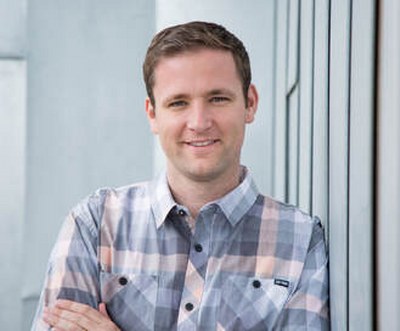Chapter 1
One of the common tragedies in life is seeing the world
around you degrade as time forges on. Eventually age may not
be seen as an accomplishment, but instead an unyielding
reminder that life will never again be as you once knew it. The
places that used to remind you of home subtly change with time
into a rustic ruin of familiarity. Those scenic images enshrined
as memories of significant moments in your life fade along with
your recollection of those memories. In time, the past that you
may have once cherished as treasured or ideal eventually
becomes an unrelenting reminder that the future will be a lot
less memorable.
But not for Charlotte – not at all. For her, the past was
not cherished, nor was it memorable. Rather, she had often
gone to excruciating lengths to forget her past. Once, she
stumbled upon a photograph in the newspaper of where she’d
grown up. Whether out of retaliation or an instinct for survival,
she set it afire, hoping that any memories she still had of the
place would also dissipate into the air along with the ashes of
the photograph. She then cancelled her newspaper subscription.
Charlotte’s life was the antithesis of human nature.
Indeed, it was the antithesis of nature itself. In college, she’d
learned about a law of nature called entropy. Under this law,
everything loses energy and degrades over time. Matter falls
away from each other into a lesser, more-chaotic state of
existence. Charlotte instantly rejected this idea and consciously
determined at that moment to do everything within her power
to avoid this from occurring in her life. She had to. If she was
to allow entropy to occur at all for her, then she might as well
be homeless. This is because homelessness was the natural step
from where she’d grown up.
So, rather than embracing the hopelessness of the natural
trajectory of her life, Charlotte instead did everything she could
to succeed. She declared a major at that same college, naturally
science. She then spent all of her time holed up in the campus
library focusing on educational success instead of allowing
herself to succumb to the temporary happiness that the other
girls sought in relationships or friendships. At nineteen years
old, she was the youngest person in her college’s graduating
undergraduate class. But nineteen was much too young to be
able to seriously jump into the workforce with any ability to
earn the salary that she knew she deserved, and which would be
necessary to pursue the financial successes that she thought
she’d earned. With her hard work, Charlotte became married to
the fact that she was deserving of a successful life. Not because
she was entitled to it or even belonged in that social arena, but
because she knew that she could attain it. She knew that she
was worth it, even if the laws of nature disagreed. And she was
willing to sacrifice all other aspects of her life to obtain what
she knew nature did not want her to achieve.
For this reason, Charlotte declared her graduate degree in
marketing rather than science. She was not naive; she knew she
somehow lucked out in being attractive. If there was one thing
gifted to her from birth, she recognized that was it. With her
tall, gracefully slender appearance, Charlotte also knew she’d
easily get an entry-level position in almost any marketing firm in
any large city. And once she got it with her looks, she was
confident that she’d then be able to impress the decisionmakers
with her wit and hard work to quickly reach maximum
earning potential. This is what she desired, but also what she’d
strived so hard to achieve to avoid entropy. Always, in the back
of her consciousness, was the self-doubt that she actually
belonged in the company of those decision-makers. She truly
believed that nature had selected her trajectory as eventually
being homeless, and she had cheated it.
Perhaps that was why she despised her short, daily
commute to her downtown office at the marketing firm which
she’d chosen to conquer. She wasn’t sure why she’d chosen
Portland for where she’d begin her career. Perhaps it was
because the city was up-and-coming and becoming modern.
Perhaps it was because the idea of conquering a larger city like
Chicago or Los Angeles was too daunting. Or perhaps it was
because of its close proximity to where she was originally from
in Battle Ground, Washington. That’s right – she grew up in a
battle ground, in all senses of the word.
But location had nothing to do with why she loathed her
drive to and from her office each day. Rather, that had
everything to do with Pioneer Square.
It was necessary to drive by some corner of Pioneer
Square to reach her building located just across the street from
the corner of that depressing city center. So, it was inevitable
that her morning each day would begin with seeing the
multitude of homeless men and women that congregated at
Pioneer Square. And at the end of a long work day, her evening
every night would conclude the same way as her day had begun
– by driving by that same dreadful square.
If Portland and its suburbs were becoming the modern,
happening location for young adults, then that modernization
was forcing the area’s homeless into the middle of the city. And
that middle was Pioneer Square. It didn’t matter if it was the
heat of summer or the dead-cold of winter, there were always
homeless people using Pioneer Square as their temporary home.
But it wasn’t actually the homeless individuals themselves
that Charlotte despised. Indeed, over the past year, she had
become visually familiar with the regulars. She began to
recognize many of their faces, and even looked forward to
seeing them throughout the week – so as to provide her with
the assurance that they were surviving despite the difficult
circumstances that they’d been given in life.
Over time, she’d recognize faces disappear from the
corner. It was sporadic and random with who would disappear,
and Charlotte never knew why. She began making stories up
about what the disappearing faces’ fates were, even though it
was just a ruse to shield her from reality. She’d imagine that
some of them decided to travel to other, larger cities – hoping
to start over anew there. Others were found by distant relatives
and provided an opportunity to improve their situation. And a
lucky few were fortunate to have found a selfless stranger who
would gift them with a new life – as if they had won the lottery.
Maybe one or two of them even struck it luckier and found
someone from a wealthier class to start their life with anew,
who saw them for who they really were on the inside despite
their unfortunate life circumstances.
Though these were all fantastical stories Charlotte would
imagine about complete strangers, they were all made up
dreams to avoid what she knew was the likely outcome of
several of the unfortunate individuals who had stopped
congregating at Pioneer Square. It would seem to many that
being homeless is the low point in life, but Charlotte knew that
the majority of people would stop being at Pioneer Square for
just that reason – because the loss of life was the natural next
step from homelessness under the law of entropy. And if
Charlotte knew that she really belonged on that street corner
among her true peers, then she knew what the forces of nature
really wanted her ultimate fate to be. She was determined, at all
costs, to avoid this.
But on this cold, late January evening, Charlotte sat in her
warm, luxurious car on her way home. The stop light seemed to
linger on red longer than normal. The hue of the red light
pulsed behind the backdrop of snow being wiped off of her
windshield repeatedly from the cascading rate at which it fell.
The rhythm of the windshield wiper seemed as if it would never
end, and Charlotte’s internal pull toward Pioneer Square
intensified. As if drawn by natural instinct, she peered at the
square just to the right of her stopped car, wondering which of
the familiar homeless she would see battling to brave the bitter
cold that night.
Then she saw him. A new face. Actually, two new faces.
But it wasn’t the fact that there were two new faces which
ignited her impulse to immediately get out of her car. One of
those faces was a first for her. One of those faces was a
homeless child.











No comments:
Post a Comment